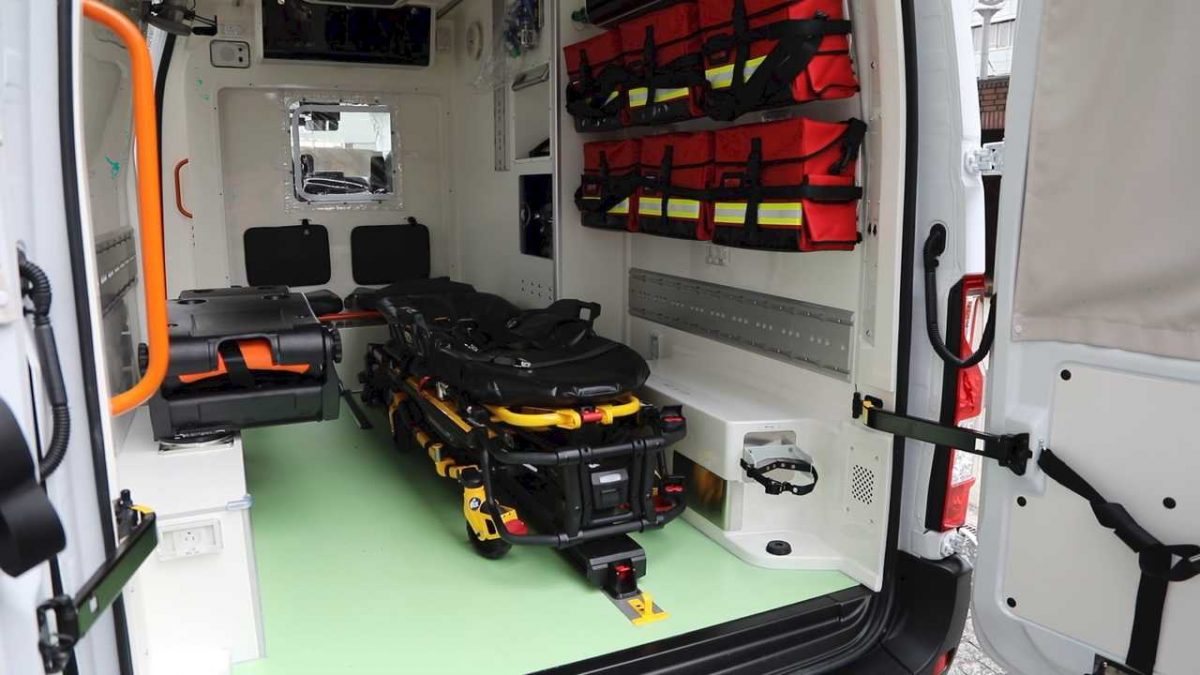FILE PHOTO: The power station of the Volkswagen (VW) plant is pictured after VW starts shutting down production in Europe amid the outbreak of coronavirus disease (COVID-19) in Wolfsburg, Germany, late March 19, 2020. REUTERS/Fabian Bimmer FRANKFURT (Reuters) – Volkswagen (VOWG_p.DE) said it agreed with a German court to pay 9 million euros ($9.9 million)… Continue reading VW pays 9 mln eur to end proceedings against chairman, CEO
Category: News Site
Tesla To increase ‘Full Self Driving’ Price: Musk Says It Will Be Worth $100k
Tesla CEO Elon Musk has announced on Twitter that the company plans to increase the price of its ‘Full Self Driving‘ option, yet again. That’s consistent with what Musk had said in the past, that the company would raise the price significantly as they get closer to actually making Full Self Driving features available. But… Continue reading Tesla To increase ‘Full Self Driving’ Price: Musk Says It Will Be Worth $100k
VW pays €9m to close case against CEO and chairman
Herbert Diess and Hans Dieter Pötsch had been charged over Dieselgate accusations Go to Source
Jaguar’s I-Pace racing series will end because of COVID-19
The Jaguar I-Pace racing series, which launched in 2018, will come to an end this year after just two seasons due to the economic fallout of the COVID-19 pandemic. Jaguar I-Pace eTrophy, as it’s officially called, will finish out whatever races it can this year alongside electric racing series Formula E and then fold up… Continue reading Jaguar’s I-Pace racing series will end because of COVID-19
Car parts maker Benteler’s move out of Germany haunts state aid hopes
FRANKFURT (Reuters) – Car parts’ maker Benteler’s move from Germany to Austria in 2010 cut its tax bill but may now create a hurdle as the company seeks to access state support during the coronavirus crisis. Benteler’s sales have slumped as demand for new cars collapsed in the wake of the pandemic, people familiar with… Continue reading Car parts maker Benteler’s move out of Germany haunts state aid hopes
Fiat Chrysler’s loan request raises doubts about 5.5 euro billion dividend
ROME/MILAN (Reuters) – Italy could look into Fiat Chrysler’s (FCHA.MI) planned 5.5 billion euro ($6 billion) payout as part of its merger with Peugeot after the Italian-American carmaker asked for a 6.3 billion euro state-backed loan, a senior government source said. FILE PHOTO – New Fiat 500 electric cars are displayed at a Fiat Chrysler… Continue reading Fiat Chrysler’s loan request raises doubts about 5.5 euro billion dividend
Santander agrees to $550 million settlement over subprime auto loans
FILE PHOTO: Automobiles are shown for sale at a car dealership in Carlsbad, California, U.S. May 2, 2016. REUTERS/Mike Blake/File Photo WASHINGTON (Reuters) – Santander Consumer USA Holdings Inc (SC.N) said Tuesday it has agreed to a settlement with 33 states and the District of Columbia worth $550 million over subprime auto loans and to… Continue reading Santander agrees to $550 million settlement over subprime auto loans
GM says it is ‘almost there’ on million-mile electric vehicle battery
(Reuters) – General Motors Co is “almost there” on developing an electric vehicle battery that will last one million miles, a top executive said on Tuesday. FILE PHOTO: A logo of General Motors is pictured at its plant in Silao, in Guanajuato state, Mexico, November 9, 2017. REUTERS/Edgard Garrido The automaker also is working on… Continue reading GM says it is ‘almost there’ on million-mile electric vehicle battery
France’s Renault reaches deal on 5 billion euro state-backed loan: sources
FILE PHOTO: The logo of Renault carmaker is pictured at a dealership in Les Sorinieres, near Nantes, France, February 19, 2020. REUTERS/Stephane Mahe/File Photo PARIS (Reuters) – French carmaker Renault (RENA.PA) has sealed a deal with banks on a 5 billion-euro ($5.47 billion) state-guaranteed loan to help the company to cope with the coronavirus outbreak,… Continue reading France’s Renault reaches deal on 5 billion euro state-backed loan: sources
Nissan Deploys Zero Emission Ambulance In Tokyo
Nissan, in partnership with the Tokyo Fire Department and the Tokyo Metropolitan Government, recently deployed an all-electric ambulance based on the Nissan NV400 van. This first of its kind zero-emission ambulance in Tokyo is equipped with two lithium-ion battery packs – the main 33 kWh traction battery and an auxiliary 8 kWh for on-board electrical… Continue reading Nissan Deploys Zero Emission Ambulance In Tokyo
